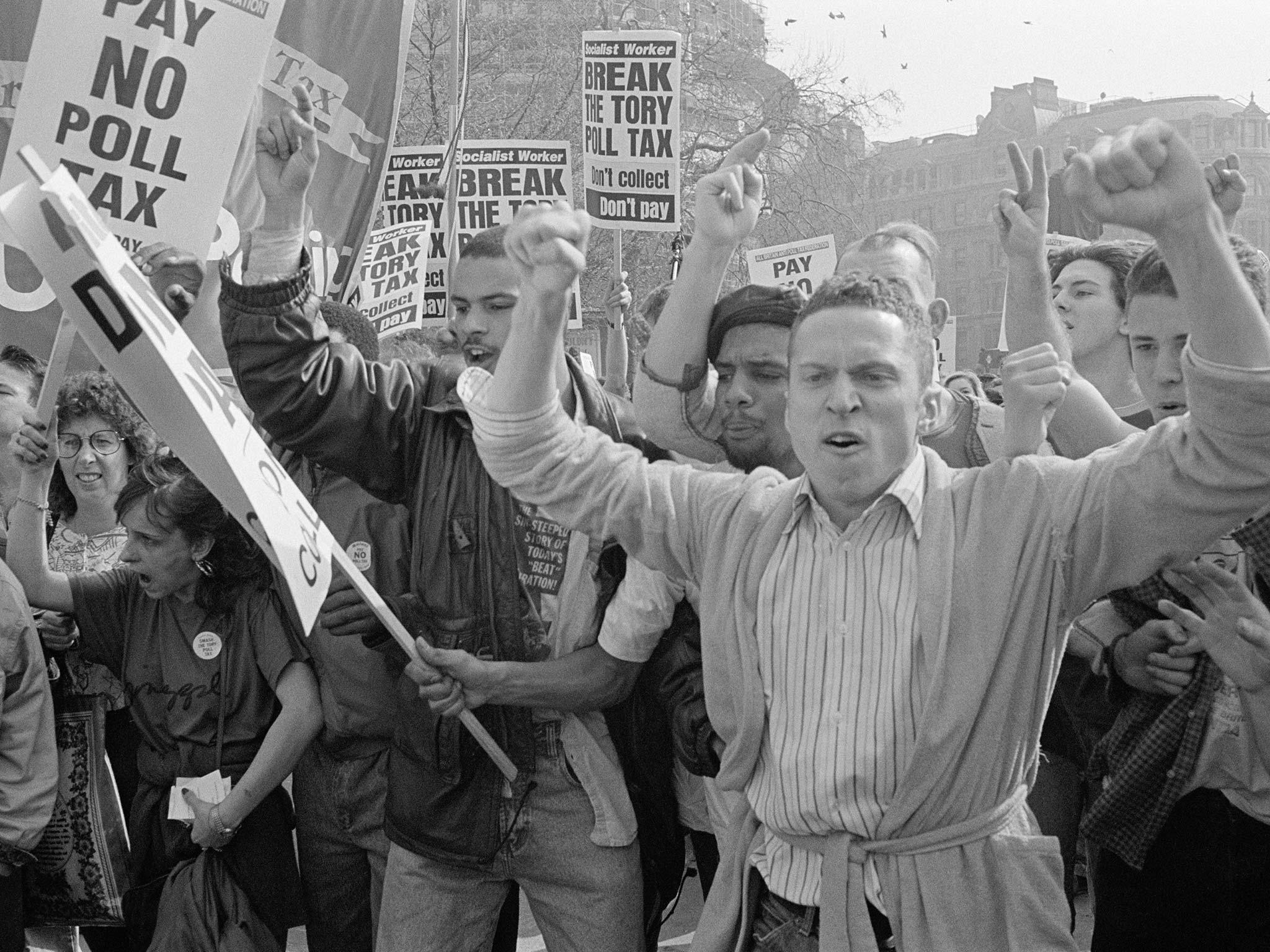Margaret Thatcher faced personal penalty after failing to register for poll tax
The embarrassing oversight was quickly rectified, but it marked an inauspicious start for the policy

Your support helps us to tell the story
From reproductive rights to climate change to Big Tech, The Independent is on the ground when the story is developing. Whether it's investigating the financials of Elon Musk's pro-Trump PAC or producing our latest documentary, 'The A Word', which shines a light on the American women fighting for reproductive rights, we know how important it is to parse out the facts from the messaging.
At such a critical moment in US history, we need reporters on the ground. Your donation allows us to keep sending journalists to speak to both sides of the story.
The Independent is trusted by Americans across the entire political spectrum. And unlike many other quality news outlets, we choose not to lock Americans out of our reporting and analysis with paywalls. We believe quality journalism should be available to everyone, paid for by those who can afford it.
Your support makes all the difference.Margaret Thatcher was threatened with a fine for failing to register for the poll tax, despite making it her flagship local government reform. The Prime Minister was warned she would be in breach of the law unless she completed her registration form on time. The embarrassing oversight – due in part to a bureaucratic wrangle between the Cabinet Office and Westminster City Council – was quickly rectified, but it marked an inauspicious start for a measure widely regarded as the biggest policy blunder of her 11 years in power – one which finally cost her the premiership.
In early 1989, as the political storm was gathering strength, Westminster City Council – like other authorities around the country – began issuing registration forms in preparation for the launch of the tax in England and Wales the following year. One form covering the various residencies in and around Downing Street – including Number 10, which Thatcher and her husband Denis had nominated as their main home – was sent to the Treasury.
But the Cabinet Office complained that it was “most inappropriate” to issue a single form “asking a number of essentially personal questions” on behalf of individual occupants. Individual forms were then despatched, but when there were still no details forthcoming, the council registration officer, David J Hopkins, warned he would be forced to act. In a letter dated 22 May 1989, he said: “My records show that the Community Charge Registration form recently sent to you has not been returned. I wish to advise that you are required by law to supply the relevant information within 21 days of this request and failure to do so may lead to a penalty being imposed.”
The letter was addressed to the “Resident/Owner” at “Rooms First Floor, 10 Downing Street, London, W1 9MN”. Officials quickly arranged for the Prime Minister to complete the form, only to discover the council had sent the wrong one and she had to do it all again. Thatcher responded cheerfully enough, noting her first effort had been “a good practice run”. She could not, however, dismiss the wider political crisis so easily.
The poll tax – or Community Charge, as it was officially known – was brought in to replace the old system of rates, based on property values, with a flat-rate levy on all local residents. Thatcher had hoped it would encourage voters to kick out high-spending Labour councils by making them financially more accountable to the electorate.
But as it became apparent that residents across the country – including in many traditional Tory areas – were facing huge increases in their bills as a result of the changes there was a furious political backlash, with a wave of protests. National Archive files show Thatcher appeared bewildered by the reaction. In March 1990 she told Chancellor John Major that she had always assumed the public would blame councils for any rises. “But in recent weeks that has not happened,” she lamented. “Rather the general public blamed the high levels of Community Charge on the Government because of their responsibility for introducing the new system.”
She acknowledged that with those on low incomes protected through various “safety net” measures, it was the “conscientious middle” – traditionally her strongest supporters – who were being hit hardest. Despite ordering a “rapid review” of possible changes for the following year, the political damage had been done. On 31 March 1990 – days before the tax was due to come into effect – a mass march through central London resulted in some of the worst rioting in the capital for decades. Metropolitan Police Commissioner Sir Peter Imbert told the Prime Minister some of his officers “came close to being murdered”. It was Thatcher, however, who was fatally damaged politically and by the end of the year she was out of office.
Press Association
Join our commenting forum
Join thought-provoking conversations, follow other Independent readers and see their replies
Comments